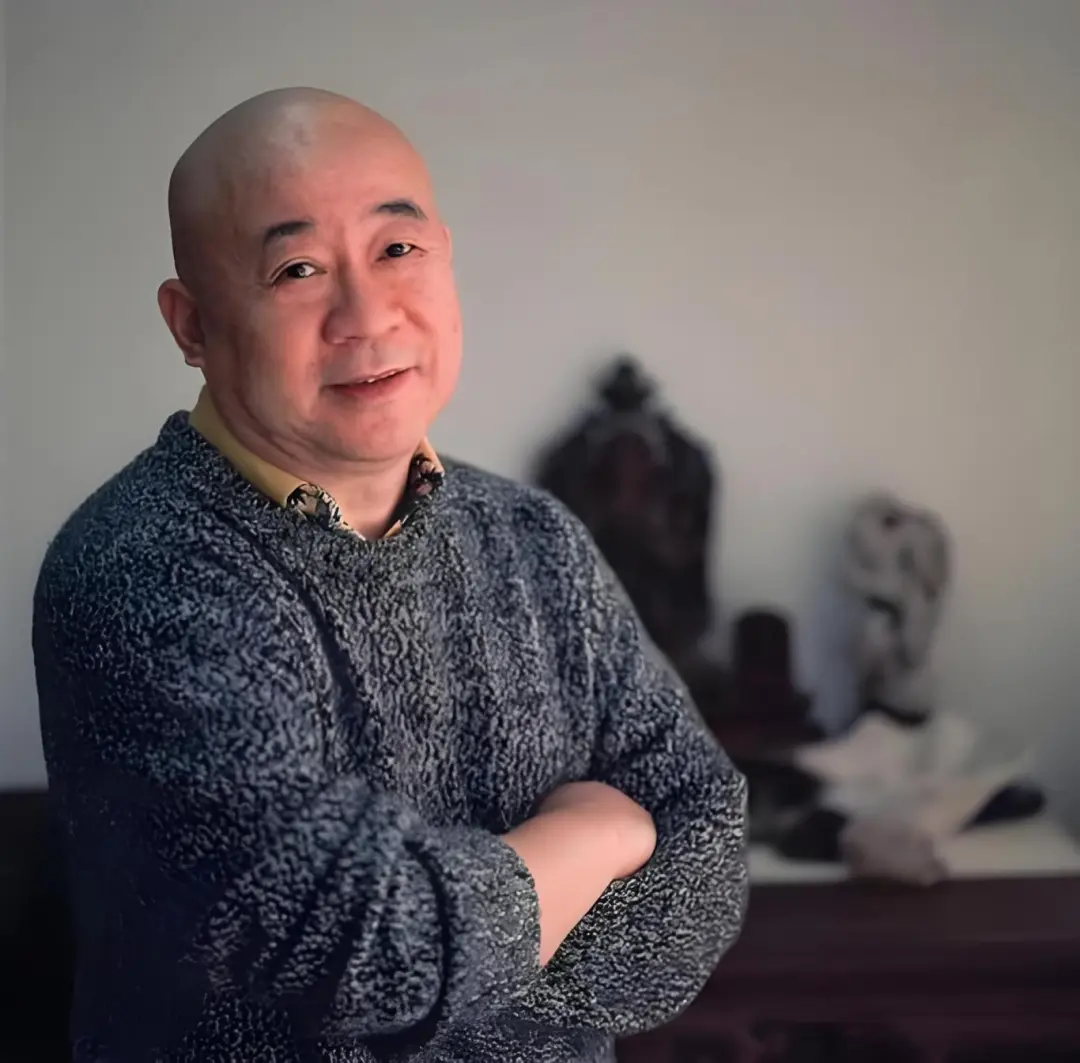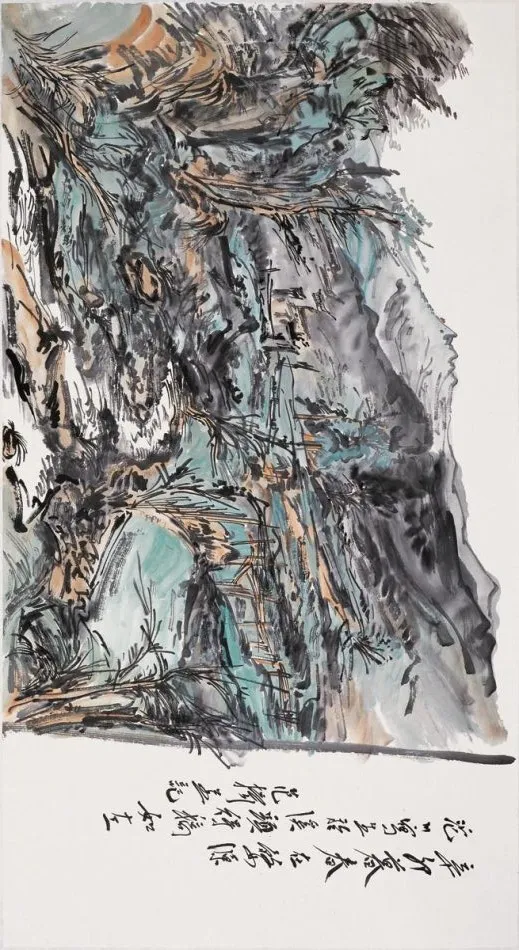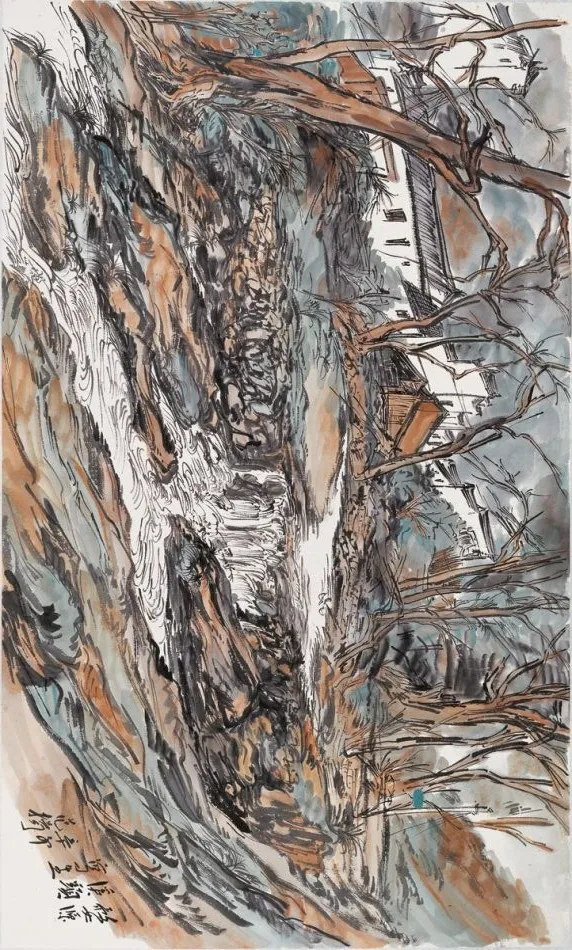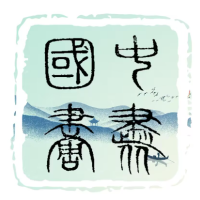范扬,公元一九五五年正月生于香江,祖籍江苏南通。其性和顺,心地淳朴,少时为良生,行事随缘,广交游,多友朋,画友中誉声颇佳。范氏世居诗文书画之家,才情过人。世家子弟,常聪慧有余而沉稳不足,多能顿悟,少耐渐修。然范君立定精神,扎根基业,含英咀华,厚积而薄发。
范扬未入大学时,曾任职于南通工艺美术研究所,研习民间刺绣与剪纸。时有海内外名家如庞薰琴、吴冠中等,常至所中讲学,启迪学术,提携后进,范扬于中获益良多。
Fan Yang was born in January 1955 in Hong Kong, with ancestral roots in Nantong, Jiangsu. His temperament is gentle and honest; as a youth, he was a diligent student and acted with ease and adaptability. He has many friends and is well-regarded among fellow artists. Coming from a family steeped in poetry, calligraphy, and painting, he possesses considerable talent. While many scions of such families are clever yet lack steadiness, prone to sudden insights but resistant to gradual cultivation, Fan Jun established his spirit firmly, rooted his foundation deeply, absorbed the essence of art, and achieved greatness through accumulation.
Before entering university, Fan Yang worked at the Nantong Institute of Arts and Crafts, where he studied folk embroidery and papercutting. At that time, numerous renowned artists from home and abroad, such as Pang Xunqin and Wu Guanzhong, frequently lectured at the institute, enlightening students and fostering younger talents. Fan Yang benefited greatly from these interactions.

范扬于绘事,涉猎甚广,山水、花鸟、人物皆擅之,工笔、写意,小品,皆臻妙境。公不墨守成规,喜尝百家之法。九十年代初,公迷工笔人物,多取材唐人诗意,纯用古法,单线平涂,勾勒渲染。其画色调古艳而纯净,结构精巧而谨严,清新明丽,令人悦目娱心,且余味无穷。
范扬作画,尤重状态。每挥毫时,气定神闲,从容若良将排兵布阵。其下笔,非胸有成竹,乃任情绪所驱,纵笔直取,以率意之线勾勒点染,先铺大格局。继而胸中意象,笔笔生发,积墨积色,遍而复遍,层而复层,使画面渐厚沉稳。凡所见之点线,虽若随意,终为统率于整体之结构,成韵律节奏之笔墨符号,显内蕴之动感。此动感无躁动张扬之态,乃透宇宙洪荒之山野气象,激荡观者之心。
范扬作画,讲求“笔厚墨沉”之意境,非技法而已,亦精神之显。幼时学书,外祖母诲之:“用笔当厚重,用墨须浓郁,关乎未来福泽。”岁月迁流,范扬习山水画,深染宋元画风,循雄浑沉稳之途。其水墨山水,笔法凝重,中锋运笔,笔笔到位,落落大方。点线行笔,天然自如,盘旋起伏,既塑朴拙之意象,亦保独特之审美。每一笔落,非独技法之展,亦情感之发,使人感其深心厚意。
Fan Yang’s artistic pursuits are broad, encompassing landscapes, flowers, birds, and figures, excelling in both meticulous and freehand styles, from grand compositions to small pieces. He does not adhere rigidly to conventions but enjoys experimenting with various techniques and styles. In the early 1990s, he became fascinated with meticulous figure painting, often drawing inspiration from Tang poetry, employing traditional methods with single lines and flat colors, outlining and shading. His works are characterized by ancient yet pure tones, intricate and precise structures, presenting a fresh and bright aesthetic that pleases the eye and mind, leaving a lasting impression.
Fan Yang places great importance on his state of mind while painting. When he wields his brush, he is calm and composed, like a skilled general arranging his troops. Before he begins, he does not necessarily have a complete vision but allows his emotions to guide him, drawing freely with spontaneous lines to establish the overall composition. He then lets his imagination flow, layer upon layer, meticulously applying ink and color until the painting becomes rich and profound. The seemingly casual dots and lines are ultimately unified into a coherent structure, forming rhythmic and melodic ink symbols, exuding a dynamic yet serene energy reminiscent of the primal wilderness, stirring the viewer's heart.
Fan Yang’s painting emphasizes the principle of “thick brush, heavy ink,” a reflection not merely of technique but of spirit. As a child learning calligraphy, his grandmother taught him, “A brush must be used with weight, and ink must be applied richly; this affects one's future fortune.” Over time, as Fan Yang delved into landscape painting, he was profoundly influenced by the styles of the Song and Yuan dynasties, following a path of grandeur and stability. His ink landscapes are marked by a solid brush technique, using the center of the brush with every stroke in place, executed with ease and confidence. The lines and dots of his brushwork are natural and free, winding and undulating, shaping his internal visions with a rustic form while preserving the unique aesthetic of the brush and ink. Each stroke not only demonstrates skill but also conveys emotion, allowing the viewer to feel his profound sincerity.













范扬性自信,视绘事为重中之重,笃信必成大家。宋元以降,名家多以山水著称,故范扬亦潜心于此,一发不可收。中华自古崇尚天人合一之哲理,山水可居可游,最能显画者之真性,展其文思修养。范扬之山水画,根基深厚,纵览其作,既有吴镇、王蒙之茂密深邃,又具赵孟頫、董其昌之沉稳雍容。其尤为可贵者,范扬能食古化今,取法乎上,而不拘于一家一派,自成鲜明风貌。范扬之山水,既具传统深厚之底蕴,亦蕴独特之创新意识。承前人之技法,融己意于其中,使其画作既存古韵,又呈新姿,令人赏之不尽。
笔墨当随时代。范扬之山水,重心灵意象之抒写,未尝脱离自然山水之感悟,亦不拘于传统笔墨程式之陈陈相因。常于造化中汲新审美,使艺作长葆生机。范君出书斋,游皖南、西藏,写生其间,亲历自然之启迪,体造化之妙,探真山水之精神。公于自然交融之际,艺悟愈加升华,画作益显沉郁厚重,表形则愈见洒脱自如。遂渐成一时代特征之笔墨程式,既蕴传统之韵,又含今时之风,画境幽远,令人神往。
范扬者,素为学术界所瞩目之画家。诸多美术刊物争相撰专题,众多批评家亦予高评,显其创作之广获认同。范扬于南京师范大学美术系,自教师而至讲师、教授、院长,循此阶,步步踏实。由书画爱好者而成当代实力派画家,范扬之行,自然从容。其道如其画,深沉悠远,闲适自若。
Fan Yang possesses a rare confidence in his nature, regarding painting as his paramount pursuit, firmly believing he can become a great artist. Since the Song and Yuan dynasties, many influential artists have been landscape painters, prompting Fan Yang to immerse himself in landscape painting, an endeavor from which he has never turned back. The Chinese philosophy of unity between man and nature finds its perfect expression in landscapes that can be inhabited, traversed, and that reflect the true character and cultivated thought of the artist. Fan Yang’s landscape paintings are deeply rooted in tradition. Surveying his works, one finds the dense depth of Wu Zhen and Wang Meng, alongside the serene grandeur of Zhao Mengfu and Dong Qichang. His notable talent lies in his ability to transform the ancient into the contemporary, drawing from tradition yet unconfined by any one school, establishing his distinctive style.
Fan Yang’s landscapes carry the profound essence of tradition while embodying a unique innovative spirit. Drawing from the techniques of past masters, he infuses his own insights, creating works that retain ancient charm yet present new appearances, endlessly captivating. Brush and ink must follow the times. Fan Yang’s landscapes emphasize the expression of the inner spirit, yet they never depart from the understanding and experience of real natural landscapes, nor do they resort to mere combinations of traditional brush and ink formulas. He continually draws new aesthetic experiences from nature, keeping his art vibrant. Leaving the study, he travels to places like southern Anhui and Tibet, sketching from life and directly experiencing the inspiration nature offers. In nature, he perceives the subtleties of creation and seeks the inner spirit of true mountains and waters. Through this communion with nature, Fan Yang’s artistic insights have deepened, his paintings becoming more rich and profound in tone, while their form grows freer and more relaxed, gradually developing a brush and ink style marked by the characteristics of his era.
Fan Yang has always been highly regarded by the academic community. Numerous art journals have featured him in special issues, and many art critics have given him high praise, clearly indicating the broad recognition his artistic creations have received. At Nanjing Normal University’s Art Department, Fan Yang progressed from teacher to lecturer, professor, and eventually dean. From an enthusiast of calligraphy and painting to a contemporary powerhouse in the art world, Fan Yang’s journey has been one of steady progress, marked by natural ease. His path, like his paintings, is deep and far-reaching, serene and leisurely.
责任编辑:苗君
